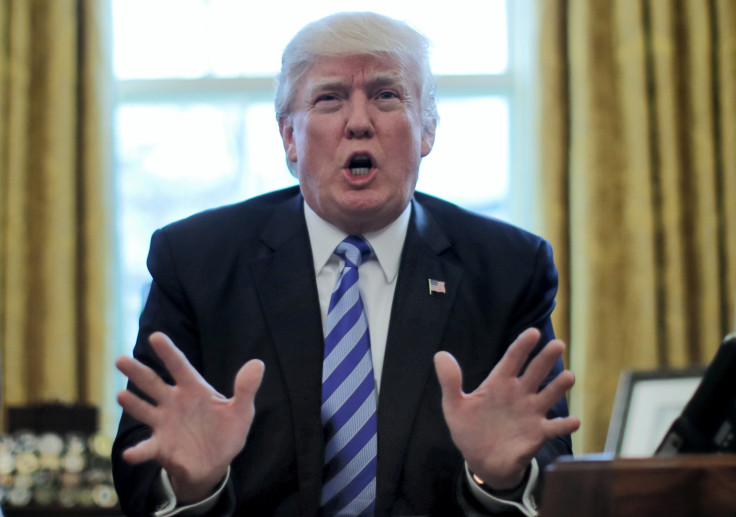Will Trump Help Workers? Job Creation In The US Will Grow, POTUS Says

One of the boldest messages President Donald Trump emphasized on the campaign trail was that he would strengthen U.S. job growth.
"I will be the greatest jobs president that God ever created,” Trump said when he announced his intention to run for president in June 2015. When Trump delivered his inauguration speech in January, he reiterated his campaign promise: “We will bring back our jobs.”
Trump is expected to take a step intended to spur job growth Tuesday when he signs an executive order canceling the Obama-era Clean Power Plan, which was signed into law in 2015 and was originally intended to reduce carbon emissions from power plants. However, Trump and Scott Pruitt, director of the EPA, have said that the regulations stifle job growth.
"We've made tremendous progress on our environment, and we can be both pro-jobs and pro-environment, and the executive order's going to address the [past] administration's effort to kill jobs across the country through the Clean Power Plan," Pruitt said Sunday.
Read: Is Republican Anti-Climate Change Agenda Killing Potential Employment Opportunities?
Wrapped up in the plan to deregulate fossil fuels is the assumption that President Barack Obama’s harsh energy and climate regulations have killed jobs.
"We're going to bring back jobs," said Vice President Mike Pence. "We're going to get Washington out of the way of energy producers and coal miners — because energy means growth for America, and President Trump digs coal."
But not everyone is skeptical that Trump's plan will go without a hitch.
Robert Murray, the founder and CEO of Murray Energy and major player in the coal industry, warned Trump Monday that merely rolling back those regulations won’t necessarily create jobs.
“I suggested that he temper his expectations,” Murray told the Guardian. “Those are my exact words. He can’t bring them back.”
Utilities have stepped away from coal because of industry pressure for cheaper and cleaner energy sources — and that won’t be fixed because of government pressure, Murray said.
According to the most recent jobs report, released earlier this month, the U.S. added 235,000 jobs to its workforce in February — Trump's first full month in office. Trump has also taken credit for various companies that have announced they will build factories in the U.S. or stop plans to move factories abroad; however, in most of those cases, the companies made their decisions without direct input from the president.
© Copyright IBTimes 2025. All rights reserved.






















